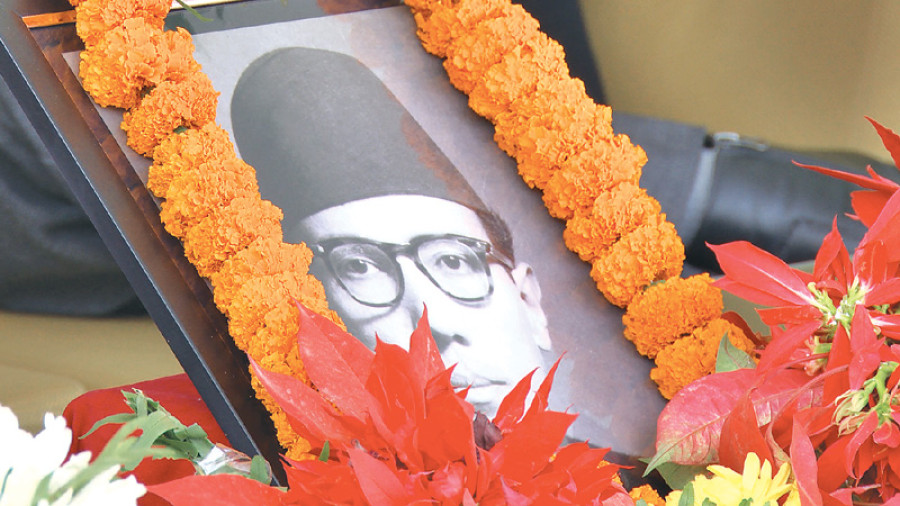Entertainment
Artists commemorate playwright Sama
Playwright Balkrishna Sama holds a special place in the history of Nepali dramaturgy, perhaps as much for his classic dramatic interpretation of Nepal’s famous political and social cornerstones-in plays such as Prem Pinda,
Playwright Balkrishna Sama holds a special place in the history of Nepali dramaturgy, perhaps as much for his classic dramatic interpretation of Nepal’s famous political and social cornerstones-in plays such as Prem Pinda, Bhimsen ko Antya and Atyadhunikta, among others—as for his heroic putdown of the regressions of the Ranas, a family lineage to which he belonged.
The playwright’s contribution in giving Nepal its own dramatic tradition could hardly be overstated, which have led some to revere him as the ‘Shakespeare of Nepal’. Timeless and incisive in his interpretation of the Nepali society, his works continue to be reinterpreted and adapted, into plays and into films, even today.
This week marks the Natya Siromani’s 114th birth anniversary (born Feb 8 1903); to commemorate which the Nepal Academy of Music and Drama organised a ceremony at its premises in Baluwatar in the Capital where a score of Nepal’s theatre artists remembered the playwright.
Senior theatre artist Prachanda Malla, a student of Sama, while honouring Sama as a “multi-dimensional talent”, went to speak about how Sama, even though he was born in an aristocratic family, struggled in life. “Sama had a hard time publishing his first work, Mutu ko Byatha. Short of funds, he went on to sell his wife’s property to publish the book in Banaras,” Malla recounted.
At the event, actor Saroj Khanal, who has recently made a theatrical comeback with the play Bahra Durbasa, commemorated Sama by saying: “I first came across the intricacies and subtlety of Sama’s plays while we adapted Prem Pinda for a film. It would be a good idea to stage Sama’s plays on his birth anniversary.”
Meanwhile, Sarubhakta, another of Nepal’s towering playwrights and incumbent chancellor of the Academy, said Sama though born in aristocratic Rana family was a writer of the commoners. “Sama was not only a playwright, he was a thinker, a poet, and a true artist,” Sarubhakta said.
Theatre artist Rajan Khatiwada credits Sama for starting Nepal’s own unique dramatic tradition. “At a time when there was a monopoly of Hindi and Urdu plays in Nepal, Sama wrote plays in Nepali, thus starting a new age of Nepal’s theatre scene,” Khatiwada said.




 18.12°C Kathmandu
18.12°C Kathmandu









